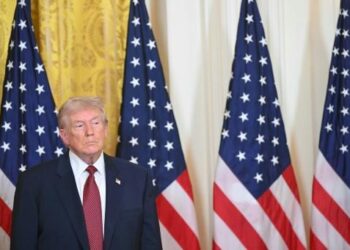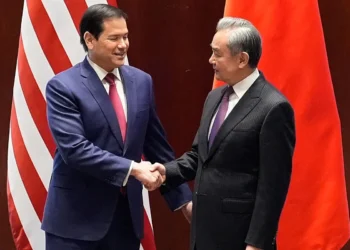TOKYO (Realist English). Japan’s fragile economy faces fresh turbulence after China urged its citizens to avoid travelling to the country, a move that threatens one of Tokyo’s key growth engines: inbound tourism.
The warning followed Prime Minister Sanae Takaichi’s remarks that any Chinese attempt to seize Taiwan by force would create a “survival-threatening situation” for Japan and could require Tokyo to assist the United States militarily. Beijing reacted sharply, escalating tensions between the two Asian powers.
Mainland Chinese tourists — 5.7 million so far this year, nearly 23% of all foreign visitors — remain Japan’s biggest inbound group. Economists warn that even a partial drop could deliver a significant blow. Takahide Kiuchi of Nomura Research Institute estimates the fallout could cut Japan’s GDP by ¥1.79 trillion over one year, equal to a 0.29% decline.
The scenario echoes the 2012–2013 Senkaku/Diaoyu dispute, when Chinese arrivals fell nearly 8%. Tourism has since become a crucial economic driver: inbound travel contributed 0.4 percentage points to last year’s modest 0.1% annual GDP growth, according to Mastercard Economics Institute. Moody’s Analytics warns that halving Chinese arrivals — a pattern seen in past crises — would trim GDP growth by 0.2 percentage points.
The diplomatic row escalated after China’s consul general in Osaka, Xue Jian, posted — and later deleted — an inflammatory message on X. Tokyo summoned China’s ambassador; Beijing responded by summoning Japan’s envoy and increasing maritime and drone activity near the Senkaku islands, prompting Japan to deploy fighter jets. Chinese state media accused Takaichi of “gross interference.”
Analysts say the standoff could last months. Veteran investor David Roche said Beijing views Takaichi’s comments as crossing a “red line,” while Tobias Harris of Japan Foresight noted that neither side can easily retreat. With Takaichi’s approval rating at 69%, she faces little domestic pressure to soften her stance.
Some experts warn the episode could evolve into a “THAAD-style” freeze — referencing China’s sweeping retaliation against South Korea in 2016, which included tour bans and consumer boycotts. A comparable response would significantly damage Japan’s economic recovery.
With the country’s economy shrinking 1.8% on an annualised basis in the third quarter, the risk of prolonged tensions with Beijing adds yet another headwind for Tokyo policymakers already grappling with weak growth, US tariffs and domestic uncertainty.


















